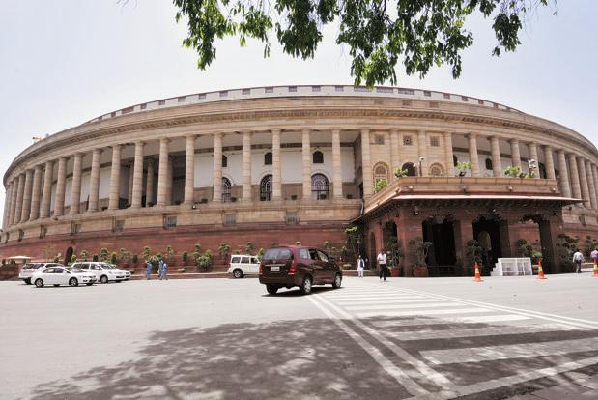
by admin | May 25, 2021 | Investing
 Washington (IANS) The Insolvency and Bankruptcy Code, passed by parliament on Wednesday, will improve the ease of doing business in India for both domestic and global investors, the US-India Business Council (USIBC) said in a statement here.
Washington (IANS) The Insolvency and Bankruptcy Code, passed by parliament on Wednesday, will improve the ease of doing business in India for both domestic and global investors, the US-India Business Council (USIBC) said in a statement here.
“The Bill is another feather in the cap of the government’s drive to improve the ease of doing business for both domestic and global investors,” said council president Mukesh Aghi.
“The passage of this Bill will establish an entrepreneur-friendly legal bankruptcy framework for speedy, efficient and consistent resolution of insolvencies for companies and individuals,” he said.
The USIBC will welcome Prime Minister Narendra Modi as the guest of honour for its 41st Annual Leadership Summit here on June 7 at the gathering of senior Indian and American leaders from the public and private sectors, the statement added.
The Rajya Sabha on Wednesday gave its approval to the Insolvency and Bankruptcy Code, 2015, following its passage through the Lok Sabha last week.
The Insolvency Bill proposes to enact a single bankruptcy code and set deadlines for processing insolvency cases, thereby cutting down the time it takes to wind up a company or recover dues from a defaulter. It has proposed a timeline of 180 days, extendable by 90 more days, to resolve bankruptcy cases.
The code will provide a specialised resolution mechanism to deal with bankruptcy situations in banks, insurance companies and financial sector entities.
The code is quite a positive reform for India’s financial sector, especially for state-run banks heavily burdened with stressed assets, as it will give creditors a legal path for recovering their dues in a time-bound way, Japanese financial services firm Nomura said in a report last week.

by admin | May 25, 2021 | Economy, News
 New Delhi, (IANS) The Lok Sabha on Thursday gave its nod to the Insolvency and Bankruptcy Code, 2016, that seeks to improve the ease of doing business in the country.
New Delhi, (IANS) The Lok Sabha on Thursday gave its nod to the Insolvency and Bankruptcy Code, 2016, that seeks to improve the ease of doing business in the country.
The measure seeks to overhaul the laws regulating insolvency amid a surge in bad loans. The bill will now go to the Rajya Sabha for its consent.
Piloting the legislation, Minister of State for Finance Jayant Sinha called it “transformational” and one that will restore the balance of power between the promoters and creditors.
It also seeks to amend the laws, including the Companies Act, to become an overarching legislation.
Officials and experts say the passing of the legislation before May 31 can help India improve its rankings in the World Bank’s “ease of doing business index”.
At present on the parameter of resolving insolvency, India is ranked 136 among 189 countries.
Once it gets the Rajya Sabha nod, the new law will give the banks “more confidence” to lend for long-term projects such as roads, ports and power plants, officials said.
The new draft legislation contains amendments to the original Code introduced in December 2015 as suggested by a joint parliamentary panel.
The new Insolvency and Bankruptcy Code aims to slash the time it takes to wind up a company or recover dues from a defaulter.
Bharatiya Janata Party sources told IANS that the bill will boost Prime Minister Narendra Modi’s ‘Made in India’ programme and attempts to improve the ease of doing business, as promised by the National Democratic Alliance dispensation to the foreign investors.
The new code seeks to replace the existing century-old bankruptcy laws and provide a time-bound process for resolving insolvency issues.
It will cover individuals, companies, limited liability partnerships and partnership firms.
The government expects the bill to get Rajya Sabha approval too since members from the upper house too were a part of the joint committee on the issue.
“There were 12 laws, some of which were more than 100 years old, to tackle insolvency and now there will be one law. We will be able to quickly move up the World Bank rankings,” Sinha said while replying to the debate.
The bill, after its introduction in December last year, was referred to a joint committee of both houses. The committee, which submitted its report last week, proposed a number of changes.
The parliamentary panel also recommended that money due to workers and employees from the provident fund, pension fund and gratuity fund should not be included in the assets of estates under liquidation.
Among others, Gaurav Gogoi and Sushmita Dev (Congress) and Saugata Roy (Trinamool Congress) also spoke on the issue.
The members underlined that the “implementation” of the new Code will be key to its success and future roadmap.
The members also suggested that the government will have to move faster to strengthen debt recovery tribunals and the appellate tribunals for effective implementation of the new law.

 Washington (IANS) The Insolvency and Bankruptcy Code, passed by parliament on Wednesday, will improve the ease of doing business in India for both domestic and global investors, the US-India Business Council (USIBC) said in a statement here.
Washington (IANS) The Insolvency and Bankruptcy Code, passed by parliament on Wednesday, will improve the ease of doing business in India for both domestic and global investors, the US-India Business Council (USIBC) said in a statement here.
